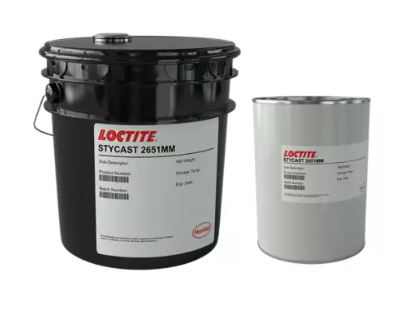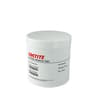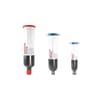LOCTITE STYCAST 2651MM
Harmonization Code : 3907300090 | Polyacetals, other polyethers and epoxide resins, in primary forms; polycarbonates, alkyd resins, polyallyl esters and other polyesters, in primary forms
Main features
- Low viscosity
- Good machinability
- Excellent chemical resistance
Product Description
LOCTITE STYCAST 2651MM is a filled, low viscosity, general purpose, epoxy encapsulant. It contains a soft filler that both reduces abrasion in meter/mix equipment and enhances machinability in the cured product.
LOCTITE STYCAST 2651MM has a long pot life, excellent chemical resistance, and good physical and chemical properties at elevated temperatures.
Technical Specifications
| General Properties | |
| Density (g) | 1.61 g/cm3 |
| Thermal Properties | |
| Thermal Conductivity Thermal Conductivity Thermal conductivity describes the ability of a material to conduct heat. It is required by power packages in order to dissipate heat and maintain stable electrical performance. Thermal conductivity units are [W/(m K)] in the SI system and [Btu/(hr ft °F)] in the Imperial system. | 0.6 W/m.K |
| Electrical Properties | |
| Dielectric Strength Dielectric Strength Dielectric strength is measured in kV per mm and is calculated by the Breakdown voltage divided by the thickness of the tested material. Those two properties go hand in hand and while Breakdown voltage is always thickness dependent, dielectric strength is a general material property. As an example, the dielectric strength of Polyimide is 236 kV/mm. If we place 1mm of Polyimide between two electrodes, it will act as an insulator until the voltage between the electrodes reaches 236 kV. At this point it will start acting as a good conductor, causing sparks, potential punctures and current flow. | 17.7 kV/mm |
| Chemical Properties | |
| Water Absorption | 0.1 % |
| Physical Properties | |
| Viscosity Viscosity Viscosity is a measurement of a fluid’s resistance to flow. Viscosity is commonly measured in centiPoise (cP). One cP is defined as the viscosity of water and all other viscosities are derived from this base. MPa is another common unit with a 1:1 conversion to cP. A product like honey would have a much higher viscosity -around 10,000 cPs- compared to water. As a result, honey would flow much slower out of a tipped glass than water would. The viscosity of a material can be decreased with an increase in temperature in order to better suit an application | 35000 mPa.s |





